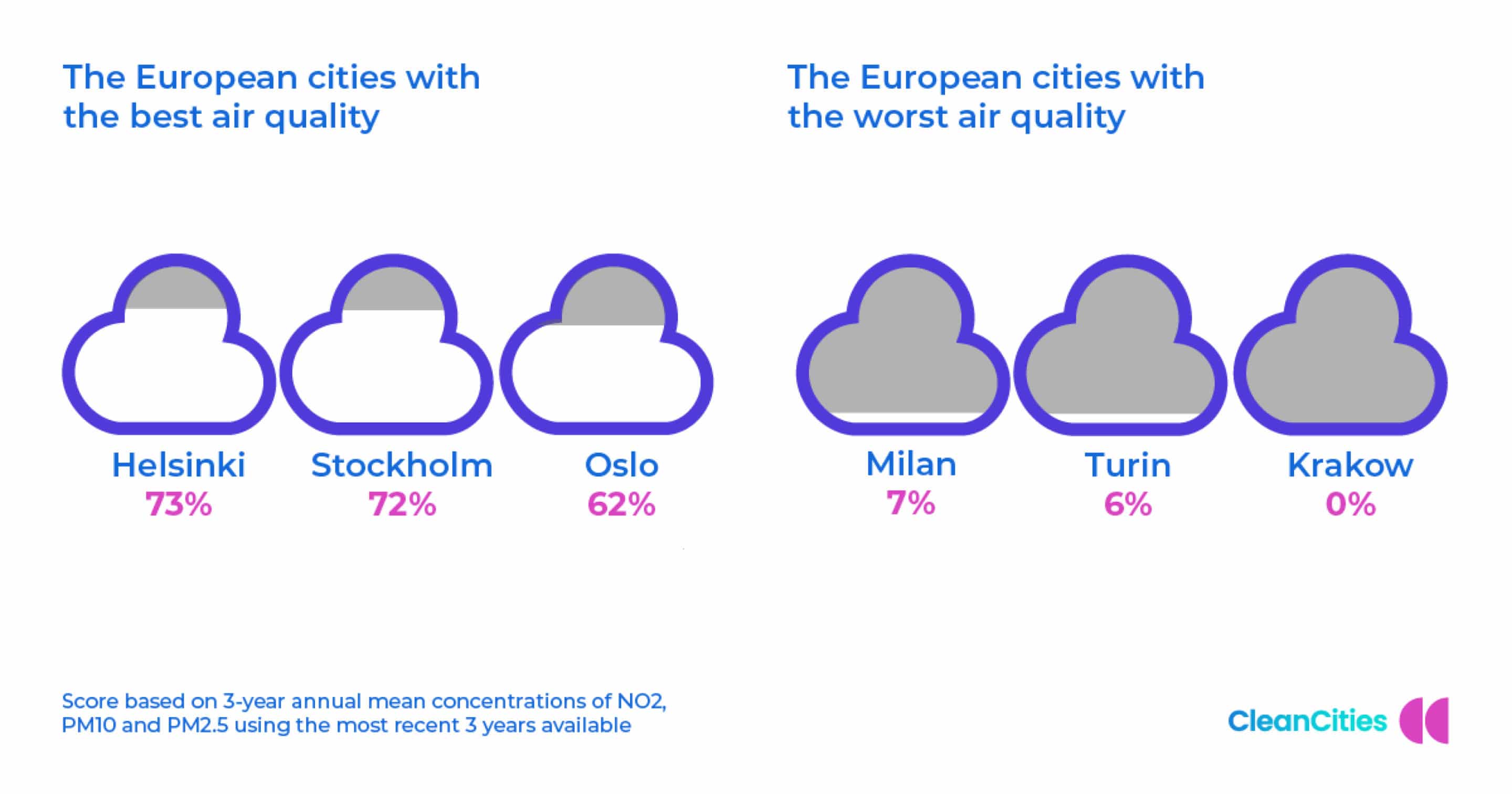According to a new study published today, no major European city is developing enough non-polluting forms of transport by 2030, threatening to undermine the health of its citizens. This disappointing situation in 36 major cities was revealed in a report released by the Clean Cities Campaign, a coalition of NGOs and local groups, which includes EPHA, campaigning for zero-emission urban mobility by 2030.
This coalition pushes for European city leaders to reach zero-emission mobility to improve the air we breathe. To radically reduce emissions from transport, they must set a clear vision, timeline, and a pathway for fully transitioning to active, shared, and electric mobility by 2030. They must actively promote zero-emission mobility, including walking, cycling, and public transport as well as other recommendations developed by EPHA in March 2021.

Nearly three in four Europeans live in cities, making urban centres critical in shifting toward a healthy, sustainable, and environmentally friendly future. The Commission identified more than 100 cities that had breached EU air quality limits, despite these European limits being far less ambitious than the 2021 WHO Global Air Quality Guidelines. This is the reason why urban mobility has to change – substantively and fast.
The Clean Cities Campaign’s research shows that significant improvements are needed to make sure cities can play their role in meeting the region’s zero emission goal. These include setting clear and binding zero-emission urban mobility goals for 2030 and reviewing EU legislation accordingly, for instance new vehicle emission standards to protect public health and the environment.
The report examined whether cities have what it takes to fully decarbonise their transport systems through the lenses of access to active travel options like walking or cycling, safety, affordable public transport, congestion, charging infrastructure and clean air.
